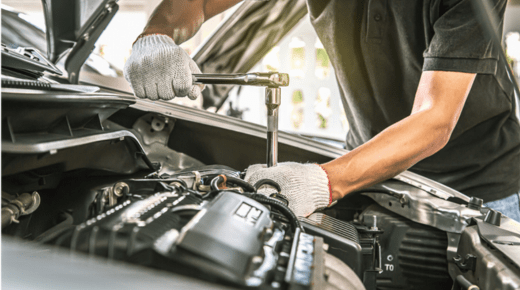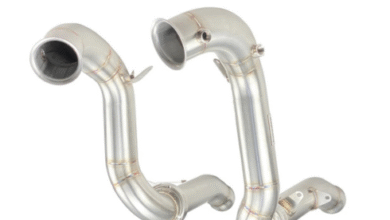The Ultimate Guide to Diesel Vehicle Maintenance – Keep Your Engine Running Smoothly

Diesel engines are renowned for their durability, power, and fuel efficiency. However, to ensure they continue performing at their best, regular maintenance is essential. This guide provides a comprehensive overview of diesel vehicle maintenance, including crucial aspects like diesel vehicle repair and smog checks.
Understanding Diesel Engine Maintenance
Diesel engines operate differently from their gasoline counterparts. They rely on compression ignition rather than spark ignition, which places unique demands on engine components and maintenance practices. Proper maintenance not only extends the lifespan of your engine but also enhances its performance and fuel efficiency. Regular servicing, timely repairs, and adherence to manufacturer recommendations are key to keeping your diesel engine running smoothly.
Diesel Vehicle Repair: Ensuring Longevity and Performance
Diesel vehicle repair is a critical component of maintaining engine health. Due to the high-pressure operation of diesel engines, components such as the turbocharger, fuel injectors, and the intercooler are under significant stress. Here are some essential tips for effective diesel vehicle repair:
1. Routine Inspections
Routine inspections help identify potential issues before they escalate into major problems. Regularly check for signs of wear and tear, unusual noises, or leaks. Early detection of issues such as fuel system leaks or turbocharger malfunctions can prevent costly repairs and downtime.
2. Fuel System Maintenance
The fuel system in a diesel engine is complex and requires special attention. Regularly replace the fuel filters to ensure that contaminants do not damage the injectors or fuel pump. Use high-quality diesel fuel and additives to maintain clean fuel lines and injectors.
3. Turbocharger Care
Turbochargers are integral to diesel engine performance, boosting power and efficiency. Regularly inspect the turbocharger for signs of damage or wear. Ensure that the intake and exhaust lines are clear and that the turbocharger’s bearings are properly lubricated.
4. Cooling System Upkeep
Diesel engines generate significant heat, making a well-functioning cooling system essential. Check the coolant levels and condition regularly. Replace the coolant according to the manufacturer’s recommendations to prevent overheating and engine damage.
5. Exhaust System Maintenance
The exhaust system in diesel vehicles often includes a diesel particulate filter (DPF) that requires regular maintenance. Ensure that the DPF is not clogged and that the exhaust system components are in good condition to minimize emissions and maintain performance.
Smog Check: Ensuring Compliance and Efficiency
A smog check is an essential aspect of diesel vehicle maintenance, particularly in regions with strict emissions regulations. These checks ensure that your vehicle complies with environmental standards and operates efficiently. Here’s how to prepare for and understand the importance of a smog check:
1. Understanding Emissions Regulations
Emissions regulations for diesel vehicles vary by location, but they generally focus on reducing pollutants such as nitrogen oxides (NOx) and particulate matter. Familiarize yourself with the regulations in your area to ensure that your vehicle remains compliant.
2. Preparing for a Smog Check
Before undergoing a smog check, perform a pre-check inspection. Ensure that the engine is in good condition, the exhaust system is functioning properly, and there are no visible leaks. A well-maintained vehicle is less likely to fail a smog check and will typically perform better in terms of emissions.
3. Addressing Common Issues
Common issues that can lead to smog check failures include faulty oxygen sensors, clogged air filters, and malfunctioning catalytic converters. Regular maintenance and timely repairs of these components can help ensure that your vehicle passes the smog check.
4. Post-Smog Check Maintenance
If your vehicle does not pass the smog check, address the identified issues promptly. Work with a qualified diesel vehicle repair technician to resolve any problems and ensure that your vehicle meets the necessary emissions standards.
Conclusion
Maintaining a diesel vehicle requires a proactive approach to repair and regular inspections. By focusing on key aspects such as diesel vehicle repair and smog checks, you can ensure that your engine remains in optimal condition, operates efficiently, and complies with environmental regulations. Regular maintenance not only extends the lifespan of your diesel engine but also enhances its performance and reliability. Adhering to these guidelines will help you keep your diesel vehicle running smoothly for years to come.




